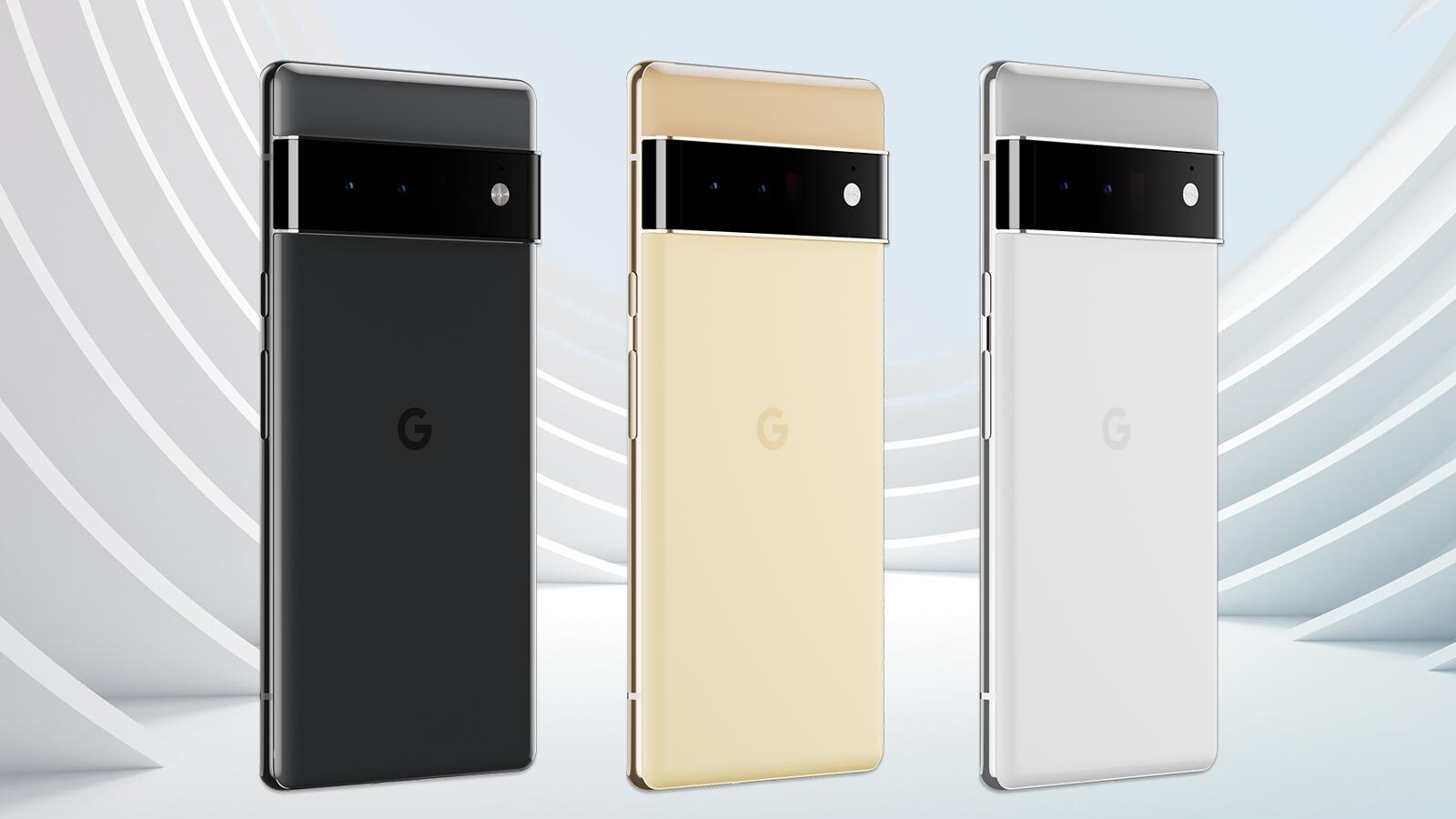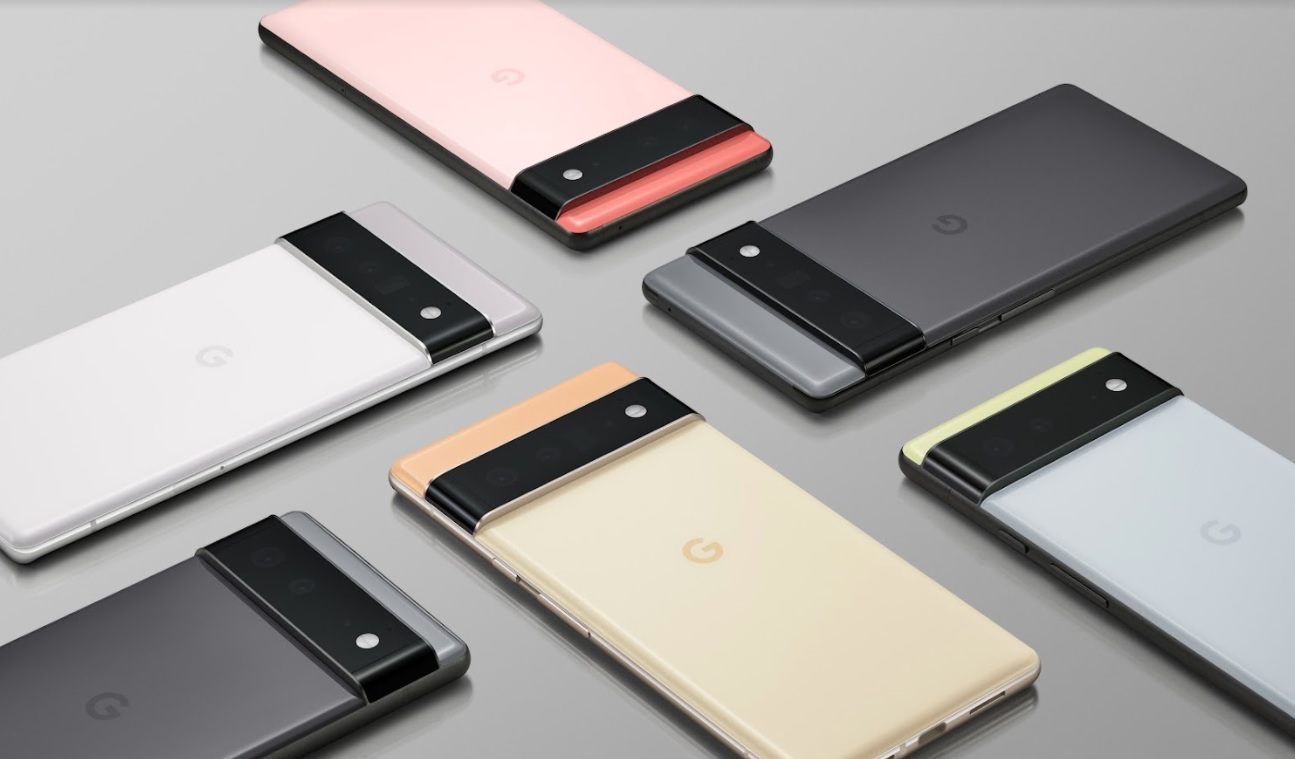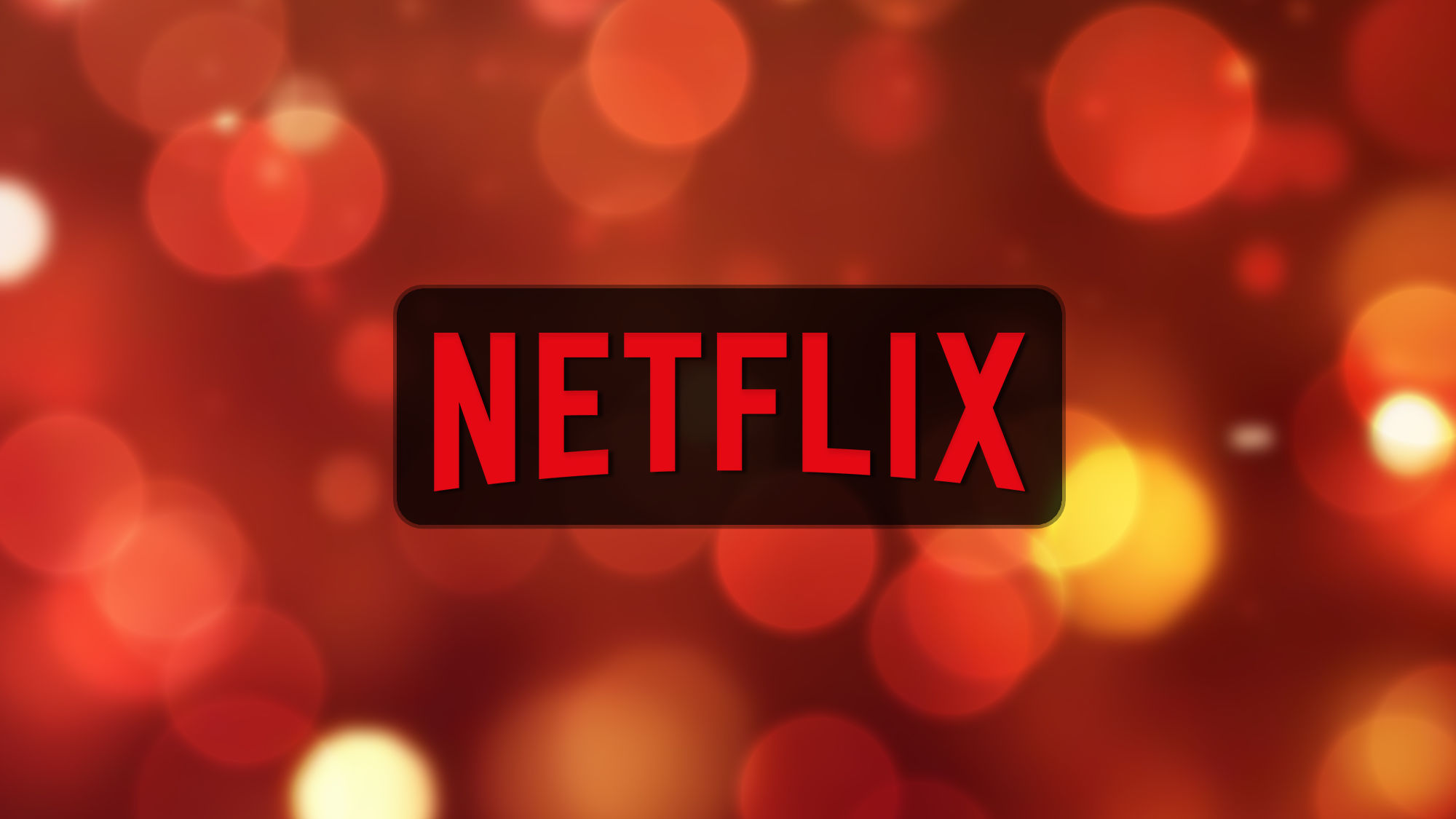Google Pixel 6 Pro: 5 reasons I’m excited for a big Google phone
The Pixel 6 Pro could be the best pure Android phone yet

I adore the Google Pixel 5’s compact size as it fit into my coronavirus pandemic lifestyle of working from home and wanting a smaller yet capable phone that I could simply slip into my pocket while going for my government-mandated daily dose of exercise. But now that the world is opening up again, I have returned to larger Android phones, which is why the official announcement of Google Pixel 6 Pro has caught my eye.
Google's XL Pixel phones in the past offered serious flagship specs in a form factor that was ideal for getting stuff done on the go thanks to its larger and sharper screen and bigger battery over the Pixel 4. So seeing Google return to a larger Pixel phone brought a smile to this tech journalist’s weary face.
- Google Pixel 6 vs Pixel 5: Biggest upgrades to expect
- Google Pixel 6 — can Google justify the 'expensive' price?
- Plus: Samsung Galaxy S21 FE just spotted in certification listings as launch nears
However, Google hasn't revealed all the specs or much detail into the capabilities of what to expect from the Pixel 6 Pro. That’ll come sometime in the fall when the Pixel 6 phones get a full reveal.
So that’s left me thinking about what I’m looking forward to and I would really like to see from the Pixel 6 Pro to make me shun Samsung flagships and my current phone of choice, the Oppo Find X3 Pro.
Pixel 6 Pro: 120Hz high refresh rate display
The Google Pixel 4 XL brought in a 90Hz high refresh rate display to Google phones. But having used a suite of 120Hz Android handsets over the past year I’m now fully on Team High Refresh. So 90Hz is nice but doesn't cut the mustard anymore.
While the standard Pixel 6 features a 6.4-inch 90Hz display, the Pixel 6 Pro’s 6.71-inch AMOLED display has a 120Hz refresh rate. So I’m really looking forward to using a pretty much unfettered version of Android 12 running at a super slick 120Hz, something I’ve not have access to before thanks to other phone makers insisting on putting their own user interface on top of Android.
Given Pixel phones have always felt smooth to use thanks to Google's optimization, I’m expecting the Pixel 6 Pro’s display to make flitting through Android apps and menus feel slicker than an eel covered in butter.
Get instant access to breaking news, the hottest reviews, great deals and helpful tips.
Pixel 6 Pro: Return of the telephoto camera
The Pixel 4 saw Google opt for a dual-camera array on its rear that sported a main lens and a telephoto lens, rather than the likely pairing of a main lens and ultra wide angle camera. As someone who prefers to use mobility to fit more into a frame rather than put up with the distortion of ultra wide photos, I was okay with this choice; other reviewers disagreed.
With the Pixel 5, Google seemingly caved to pressure and swapped out the telephone camera for an ultra-wide one. But with the Pixel 6 Pro, we’re set to get the best of both worlds, with it’s rear camera array comprising a 50MP main camera and a 48MP telephoto lens and 12MP ultra-wide snapper. You'll get a 4X optical zoom, and that makes me happy.
I rather like taking close up shots, and while macro lenses tend to be a letdown, I find a proper optical zoom quite useful for getting the semi-arty shots I want, Add in a layer of Google’s computational photography and I’m excited to see what the telephoto camera on the Pixel 6 Pro could do.
Pixel 6 Pro: A boost in photo and video capture

It's a given that a new Pixel phone will deliver improved photography chops over its predecessor. But with the new AI-centric Tensor chip, Google has the scope to really ramp up its image signal processing and smart computational photography even further.
So I’m both hoping and looking forward to seeing a serious jump in camera quality. The camera system in tandem with the Tensor chip will make capturing fast moving subjects less of a burry mess. But I’m also excited to see what Google could do with the way it handles contrast-y photos and challenging scenes with a lot of highlights and shadows. As it stands, the iPhone 12 Pro Max tops our best camera phones list, but I’m hoping to see Google take back its smartphone photography crown.
More than that, I’m keen to see what Google can do with video. The Pixel 5 tops out as 4K video capture at 60 frames per second, which is easily beaten by the higher resolution and frame rate capture seen in the likes of the Samsung Galaxy S21. So I'm expecting Google to step up in the video department, but I’m also keen to see how its AI tech can be applied to getting better video footage. For example, the Tensor chip is designed to help detect sunsets and capture them more accurately than other cameras phones.
I’ve yet to find a smartphone that makes video capture as easy and good as my iPhone 12. But if the Tensor chip can add a new level of smart processing to handle smooth transitions from light to dark areas and better tackle shifts in contrast, I’ll be looking very favorably on the Pixel 6 Pro.
Pixel 6 Pro: Smarter smarts with Tensor chip
Google has talked up the Tensor chip as basically being AI centric, but it’s not gone into a lot of detail as to what the extra smart capabilities the chipset could enable. And I’m hoping that Google really runs with AI in the Pixel 6 Pro.
I already find the Google Assistant to be rather smart, but when I tiredly tell it to set multiple alarms it gets in a bit of a muddle. So I want the Tensor chip to give the Assistant the computational brains to figure out what I mean based on my previous alarm habits. But I also want it to go further.
Google has access to my calendar, so I want it to figure out when I’m going to work and when I'm on holiday to automatically set an alarm if I happen to drift off before I bark an order to the virtual assistant.
Beyond that I’d like to see the Pixel 6 Pro offer a smarter overall Pixel experience. While I know the Pixel 5 uses AI to help with battery optimization, I’ve never really noticed a huge difference. With the Pixel 6 Pro I’d really like to see the AI tech double down on such things and really make it noticeable that advanced machine learning is at work.
The same goes for various recommendation features, like that in the Discover news feed or with YouTube videos. I really want to see the Pixel 6 Pro serve me with genuinely compelling information and content not just basic recommendations based on my browsing history; Google has been getting better at this but I’m keen to see how the Tensor chip can accelerate things.
Equally, I don’t just want to see existing smart features get better; rather, I want to see a tangible difference in the smart things the Pixel 6 and 6 Pro could offer thanks to its fancy chip.
Pixel 6 Pro: Better gaming and media
The Pixel 5 has a lovely OLED display, but unlike other phones, it has precious few features to really tap into the screen’s capabilities. There’s no AI upmixing to take standard video content and turn it into HDR or any sharpening tech. Compared to my Find X3 Pro, watching videos or indulging in a bit on mobile gaming is arguably a sup-par experience.
So I’d like to see the Tensor chip uses its AI power to smartly sharpen and improve the colors and contrast of videos and games.
Google Stadia may be a bit of a black sheep in the game streaming world. But I’d love to see it baked into the Pixel 6 Pro, maybe with the Tensor chip using its power and smarts to handle some of the game processing on the phone, thereby overcoming some of the shortcomings of streaming over a bad Wi-Fi or cellular connection. Such a technique, if possible, could be applied to video streaming services to smooth out hiccups in quality and artifacts when one’s stuck with streaming in less-than-ideal connection situations.
Google Pixel 6 Pro: Outlook
Some of these Pixel 6 Pro features are confirmed, while others may be a bit aspirational. But I’m feeling rather hopeful that Google has a very interesting and proper flagship phone on its hands with the Pixel 6 Pro, I can't wait to get my hands on this device, which could be a contender for our best Android phones list.

Roland Moore-Colyer a Managing Editor at Tom’s Guide with a focus on news, features and opinion articles. He often writes about gaming, phones, laptops and other bits of hardware; he’s also got an interest in cars. When not at his desk Roland can be found wandering around London, often with a look of curiosity on his face.
 Club Benefits
Club Benefits





